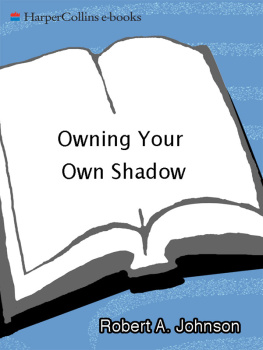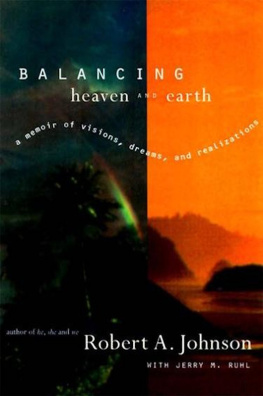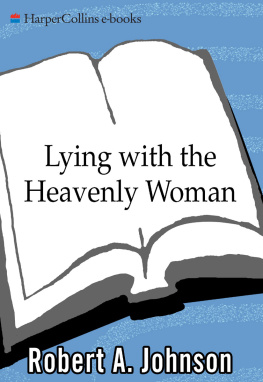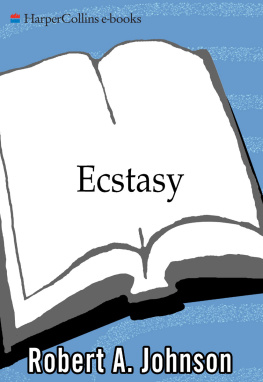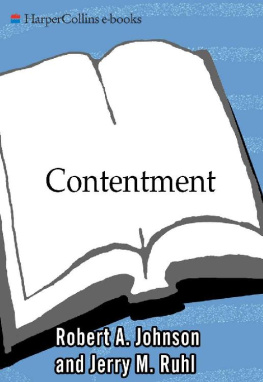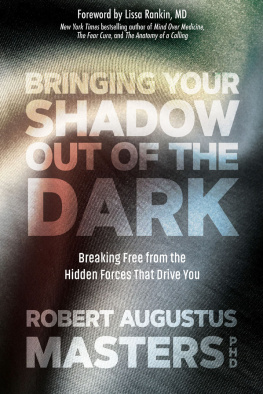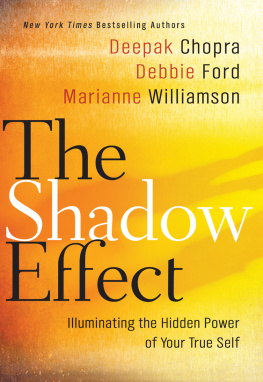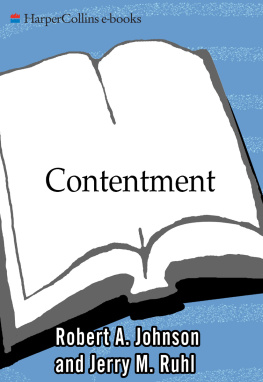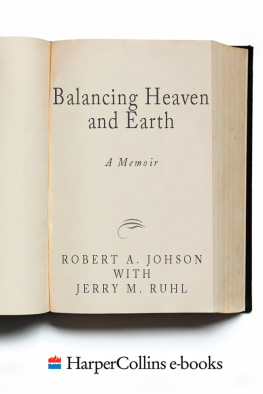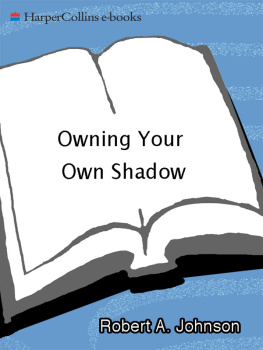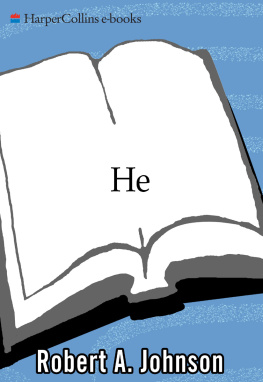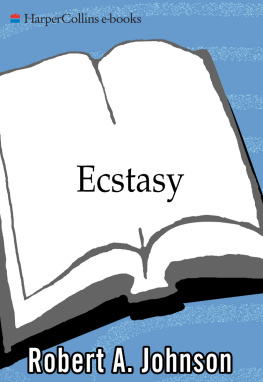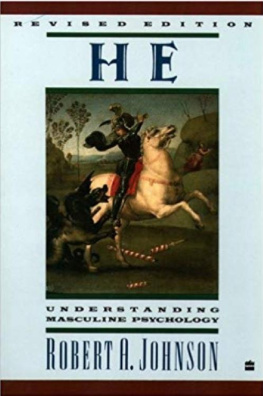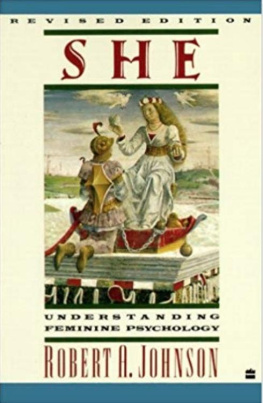I t was said that Dr. Jungs favorite story went something like this: The water of life, wishing to make itself known on the face of the earth, bubbled up in an artesian well and flowed without effort or limit. People came to drink of the magic water and were nourished by it, since it was so clean and pure and invigorating. But humankind was not content to leave things in this Edenic state. Gradually they began to fence the well, charge admission, claim ownership of the property around it, make elaborate laws as to who could come to the well, put locks on the gates. Soon the well was the property of the powerful and the elite. The water was angry and offended; it stopped flowing and began to bubble up in another place. The people who owned the property around the first well were so engrossed in their power systems and ownership that they did not notice that the water had vanished. They continued selling the nonexistent water, and few people noticed that the true power was gone. But some dissatisfied people searched with great courage and found the new artesian well. Soon that well was under the control of the property owners, and the same fate overtook it. The spring took itself to yet another placeand this has been going on throughout recorded history.
This is a very sad story, and Jung was particularly touched by it, since he saw how a basic truth can be misused and subverted into an egocentric plaything. Science, art, and particularly psychology have suffered from this dark process. But the wonder of the story is that the water is always flowing somewhere and is available to any intelligent person who has the courage to search out the living water in its current form.
Water has often been used as a symbol for the deepest spiritual nourishment of humanity. It is flowing in our time in history, as always, for the well is faithful to its mission; but it flows in some odd places. It has often ceased to flow in the accustomed sites and turned up in some most surprising locations. But, thank God, the water is still there.
In this book we will examine some of the odd places in which the water of life is flowing these days. As always, it is free, and it is fresh, as much the living water as ever before. The main difficulty is that it is to be found where one least expects it. This is the meaning of the biblical phrase What good could come out of Nazareth? Nazareth is now holy to us, the birthplace of the Savior; but in biblical times it was the wrong side of the tracks and the least likely place to find an epiphany of the spirit. Many people fail to find their God-given living water because they are not prepared to search in unusual places. It is likely to turn up in Nazareth againand be as ignored as before.
One such unexpected source is our own shadow, that dumping ground for all those characteristics of our personality that we disown. As we will see later, these disowned parts are extremely valuable and cannot be disregarded. As promised of the living water, our shadow costs nothing and is immediatelyand embarrassinglyever present. To honor and accept ones own shadow is a profound spiritual discipline. It is whole-making and thus holy and the most important experience of a lifetime.
The Shadow

T he shadow: What is this curious dark element that follows us like a saurian tail and pursues us so relentlessly in our psychological world? What role does it occupy in the modern psyche?
The persona is what we would like to be and how we wish to be seen by the world. It is our psychological clothing and it mediates between our true selves and our environment just as our physical clothing presents an image to those we meet. The ego is what we are and know about consciously. The shadow is that part of us we fail to see or know.
How the Shadow Originates
We all are born whole and, let us hope, will die whole. But somewhere early on our way, we eat one of the wonderful fruits of the tree of knowledge, things separate into good and evil, and we begin the shadow-making process; we divide our lives. In the cultural process we sort out our God-given characteristics into those that are acceptable to our society and those that have to be put away. This is wonderful and necessary, and there would be no civilized behavior without this sorting out of good and evil. But the refused and unacceptable characteristics do not go away; they only collect in the dark corners of our personality. When they have been hidden long enough, they take on a life of their ownthe shadow life. The shadow is that which has not entered adequately into consciousness. It is the despised quarter of our being. It often has an energy potential nearly as great as that of our ego. If it accumulates more energy than our ego, it erupts as an overpowering rage or some indiscretion that slips past us; or we have a depression or an accident that seems to have its own purpose. The shadow gone autonomous is a terrible monster in our psychic house.
The civilizing process, which is the brightest achievement of humankind, consists of culling out those characteristics that are dangerous to the smooth functioning of our ideals. Anyone who does not go through this process remains a primitive and can have no place in a cultivated society. We all are born whole but somehow the culture demands that we live out only part of our nature and refuse other parts of our inheritance. We divide the self into an ego and a shadow because our culture insists that we behave in a particular manner. This is our legacy from having eaten of the fruit of the tree of knowledge in the Garden of Eden. Culture takes away the simple human in us, but gives us more complex and sophisticated power. One can make a forceful argument that children should not be subjected to this division too soon or they will be robbed of childhood; they should be allowed to remain in the Garden of Eden until they are strong enough to stand the cultural process without being broken by it. This strength comes at different ages for different individuals and it requires a keen eye to know when children are ready to adapt to the collective life of a society.
It is interesting to travel about the world and see which characteristics various cultures affix to the ego and which to the shadow. It becomes clear that culture is an artificially imposed structure, but an absolutely necessary one. We find that in one country we drive on the right side of the road; in another, the left. In the West a man may hold hands with a woman on the street but not with another man; in India he may hold hands with a male friend but not with a woman. In the West one shows respect by wearing shoes in formal or religious places; in the East it a sign of disrespect to wear shoes when one is in a temple or house. If you go into a temple in India with your shoes on you will be put out and told not to come back until you learn some manners. In the Middle East one burps at the end of a meal to show pleasure; in the West this would be very bad manners.
The sorting process is quite arbitrary. Individuality, for instance, is a great virtue in some societies and the greatest sin in others. In the Middle East it is a virtue to be selfless. Students of a great master of painting or poetry will often sign their work with the name of their master rather than their own. In our culture, one brings to his or her own name the highest publicity possible. The clash of these opposing points of view is dangerous as the rapidly expanding communication network of the modern world brings us closer together. The shadow of one culture is a tinderbox of trouble for another.

